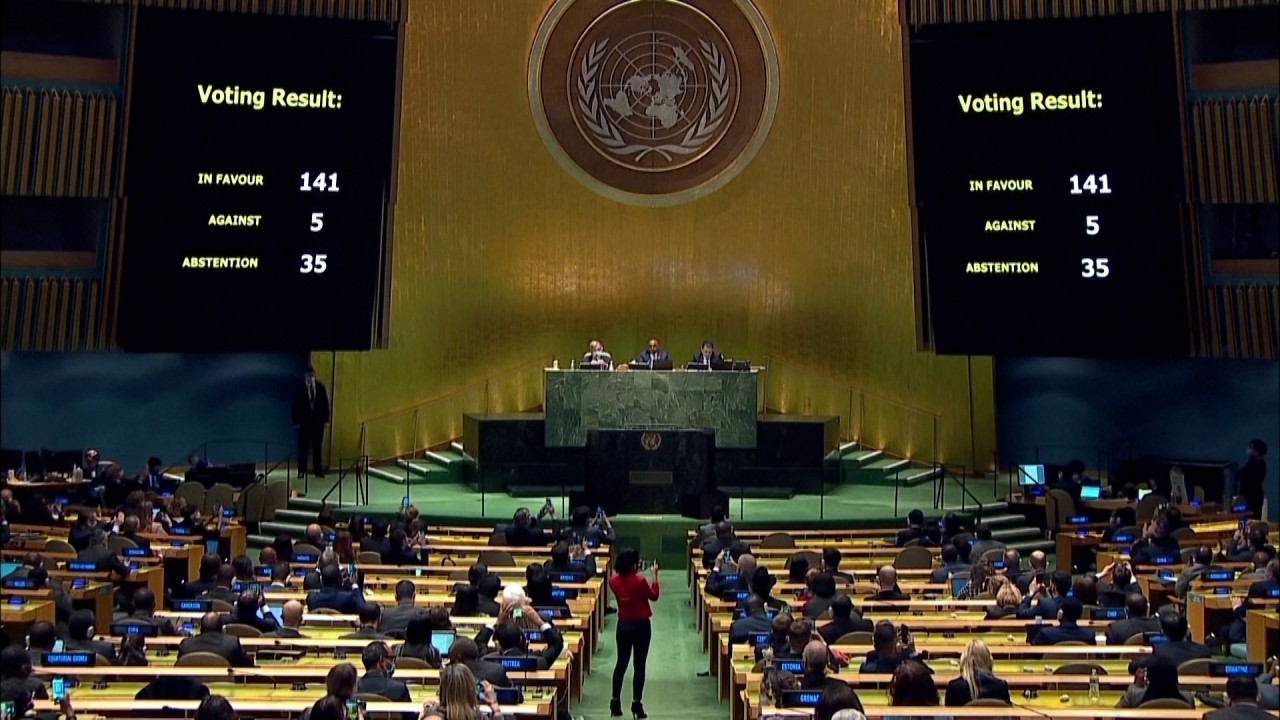Advertisement
Opinion | UN failures over Ukraine just the latest sign that multilateralism is on the brink of collapse
- Multilateral institutions have been declining as regionalism and informal agreements such as the Quad and the RCEP proliferate – raising serious challenges on how to address global issues from the refugee crisis to climate change
Reading Time:3 minutes
Why you can trust SCMP
4

The failure of the United Nations to act on the Russian invasion of Ukraine should not surprise anyone. This appears to be merely the latest demonstration of a two-decade-long trend of the growing ineffectiveness of global multilateral institutions in addressing the world’s diplomatic, security and socioeconomic challenges.
In its place, two competing forces seem to be at play. First, there has been a rise in the use of informal arrangements, such as the Quadrilateral Security Dialogue (Quad). Second, there has been a proliferation in the use of regional arrangements.
Both have weakened multilateral institutions and could mark a return to the decades of Cold War confrontation and raise questions about the long-term viability of multilateral institutions.
After the Cold War ended, multilateralism revealed its strengths in the more united world order that emerged.
Important successes since 1992 include the UN Security Council’s pivotal role in resolving the Balkan region conflicts in Bosnia and Herzegovina after the 1992-95 Bosnian war and the Kosovo conflict of 1998-99; the International Atomic Energy Agency’s role in implementing the October 1994 Agreed Framework on North Korea; the establishment of the World Trade Organization in 1995; and, the World Health Organization’s management of the 2003 severe acute respiratory syndrome (Sars) pandemic.
The weakening of multilateralism began with differences over Iraq in 2002 in the UN Security Council. The United States, having failed to persuade France and Russia – both permanent members – to authorise the invasion of Iraq, created an ad hoc coalition of the willing for the purpose. In 2013, the US again failed to gain Security Council approval for a military intervention in Syria, and again created an ad hoc coalition for the purpose.
Advertisement

